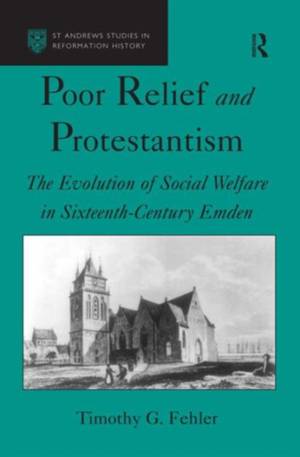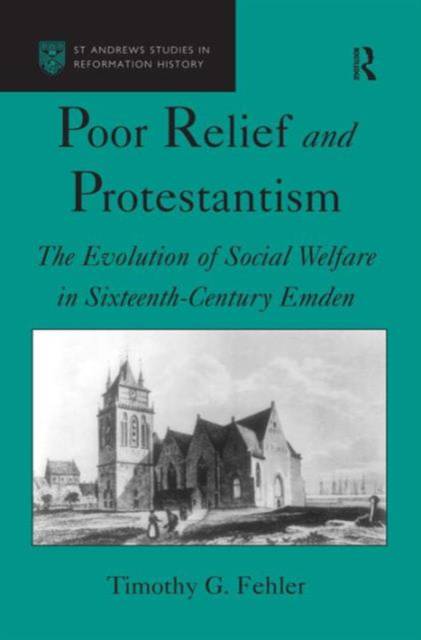
- Afhalen na 1 uur in een winkel met voorraad
- Gratis thuislevering in België vanaf € 30
- Ruim aanbod met 7 miljoen producten
- Afhalen na 1 uur in een winkel met voorraad
- Gratis thuislevering in België vanaf € 30
- Ruim aanbod met 7 miljoen producten
Zoeken
Poor Relief and Protestantism
The Evolution of Social Welfare in Sixteenth-Century Emden
Timothy G Fehler
€ 54,45
+ 108 punten
Omschrijving
This is a study of the organisation and practical operation of the system of poor relief in Emden from the late 15th century to the end of the 16th. The city went through dramatic economic, confessional and constitutional changes during this period and so offers an ideal setting for the study of the emergence and development of a highly organised, multi-jurisdictional system of social welfare in the early modern period. Utilising account books, church council minutes, wills, contracts, correspondence and guild records it focuses on the day-to-day operation of poor relief - how the many diverse institutions actually functioned. As elsewhere in Europe, the Reformation did not immediately result in swift changes in poor relief; the Roman Catholic components of the administration of social welfare were dissolved and replaced gradually. It was only when the vast changes in religious, social and economic life which occurred at the middle of the 16th century forced matters that the methods of relief for the needy were revolutionised. The city was flooded with refugees from the Dutch revolt, there were widespread and severe economic difficulties caused by bad harvests and skyrocketing prices, and the church underwent a period of intense Calvinisation; only then were Reformed institutions and methods introduced. At times, religious arguments dominated the poor relief debate, while at others the social welfare system was barely affected; the effectiveness of the new systems and institutions is illuminated by an analysis of the recipients of relief during the second half of the 16th century.
Specificaties
Betrokkenen
- Auteur(s):
- Uitgeverij:
Inhoud
- Aantal bladzijden:
- 328
- Taal:
- Engels
- Reeks:
Eigenschappen
- Productcode (EAN):
- 9781859283783
- Verschijningsdatum:
- 28/07/1999
- Uitvoering:
- Hardcover
- Formaat:
- Genaaid
- Afmetingen:
- 156 mm x 233 mm
- Gewicht:
- 770 g

Alleen bij Standaard Boekhandel
+ 108 punten op je klantenkaart van Standaard Boekhandel
Beoordelingen
We publiceren alleen reviews die voldoen aan de voorwaarden voor reviews. Bekijk onze voorwaarden voor reviews.











